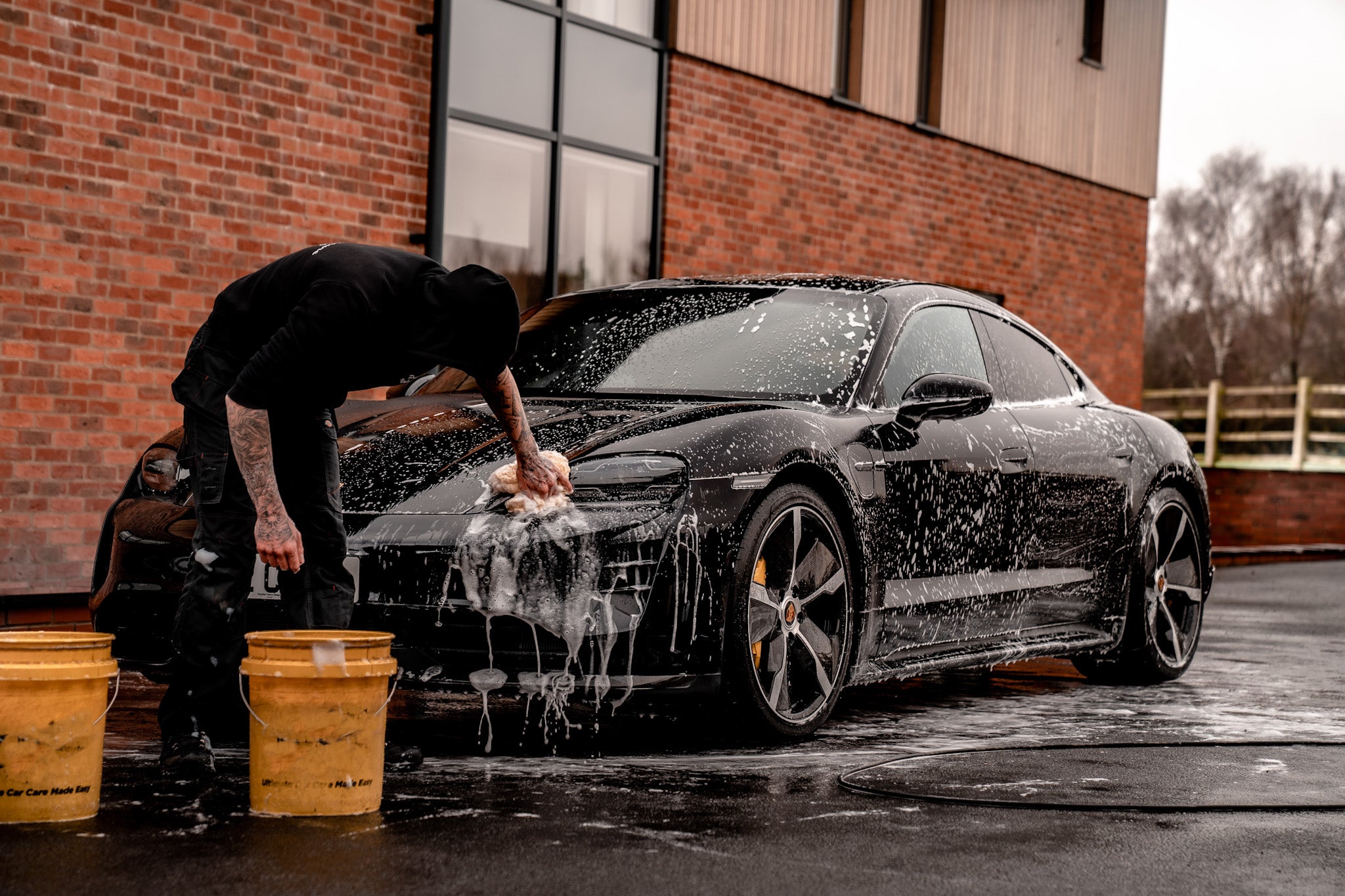A Comprehensive Guide to the Sorts Of Ceramic Finish on the Market
Ceramic layers have actually emerged as a pivotal solution across different industries due to their one-of-a-kind residential or commercial properties and applications. From silica-based formulas recognized for their toughness to crossbreed choices that merge numerous benefits, the options offered can be overwhelming. Recognizing the nuances of each type, including their specific benefits and suitable use cases, is crucial for making notified decisions. As we discover the distinct characteristics and applications of these layers, the effects for performance and durability become increasingly noticeable, questioning concerning which kind could best suit your needs.
Recognizing Ceramic Coatings
Ceramic coverings are advanced protective remedies that have actually gained popularity in various sectors, specifically in vehicle and aerospace applications. These coatings contain a liquid polymer that, when treated, creates a long lasting, hydrophobic layer on the surface of the substratum. This layer offers improved resistance to ecological pollutants, UV radiation, and chemical direct exposure, thus extending the life and visual allure of the underlying material.
The basic component of ceramic coatings is silica, which adds to their firmness and toughness. The application process normally includes surface area preparation, application of the coating, and curing, which can be achieved with warm or UV light. When treated, ceramic coverings display extraordinary bonding homes, enabling them to stick strongly to a selection of surfaces, consisting of metals, plastics, and glass.
In addition to their safety features, ceramic finishings also supply ease of upkeep. Their hydrophobic nature lowers the adherence of dust and crud, making cleansing easier and less constant. In general, the fostering of ceramic coverings stands for a significant advancement in surface protection innovation, providing both useful and aesthetic advantages across numerous fields.
Kinds Of Ceramic Coatings
Various kinds of ceramic finishings are offered, each designed to satisfy specific performance needs and applications - ceramic coating sarasota. The most usual kinds include:
Silica-based Coatings: These coatings primarily include silicon dioxide and are known for their sturdiness and chemical resistance. They are extensively used in automobile and industrial applications.
Titanium Dioxide Coatings: Distinguished for their photocatalytic homes, titanium dioxide coatings are typically applied in environments where self-cleaning and antifungal buildings are desirable, such as in building materials and vehicle surfaces.
Zirconia Coatings: Identified by their high-temperature security and thermal resistance, zirconia layers are utilized in applications such as wind turbine engines and high-performance automotive elements.
Alumina Coatings: Showing exceptional solidity and thermal stability, alumina coatings are frequently made use of in wear-resistant applications, including reducing devices and industrial equipment. - ceramic coating sarasota
Crossbreed Coatings: Combining the residential properties of various products, crossbreed finishings use improved performance qualities, making them appropriate for unique and requiring applications.
Each kind of ceramic finishing offers unique objectives, permitting individuals to choose the most ideal remedy based upon particular ecological problems and efficiency needs.
Benefits of Ceramic Coatings
Ceramic layers, in specific, offer many benefits that make them increasingly preferred among producers and customers alike. These coverings are immune to scratches, chemicals, and UV rays, making sure that the underlying surface continues to be secured over time.
Along with durability, ceramic coverings give exceptional hydrophobic properties, enabling very easy cleansing and maintenance. This water-repellent nature decreases the adherence of dirt, gunk, and various other pollutants, which can lengthen the aesthetic charm and functionality of the surface area. Ceramic coverings can considerably enhance thermal resistance, making them perfect for applications that sustain high temperature levels.

Application Refine
When applying ceramic layers, a meticulous technique is necessary to attain ideal results. A clean surface area guarantees correct adhesion of the finishing.
As soon as the surface area is prepped, the next action is to use the ceramic coating. The covering must be applied in slim layers, as thicker applications can lead to uneven finishes.
After application, the covering needs a particular curing time, normally ranging from a few hours to a full day, depending on the product. Adhering to these actions diligently will maximize the efficiency and durability of the ceramic layer, offering a long lasting safety layer for the Home Page surface area.
Upkeep and Durability
To make sure the longevity and effectiveness of a ceramic layer, regular upkeep is necessary. Ceramic coverings, understood for their durability and protective top qualities, need details treatment routines to optimize their lifespan and efficiency. The look at this now first action in maintenance includes routine cleaning with pH-neutral soap, avoiding severe chemicals that can break down the coating. It is recommended to wash the lorry consistently, ideally every two weeks, to avoid the accumulation of contaminants that could endanger the coating's stability.
Along with regular washing, regular evaluations are critical. Look for signs of wear or damage, such as hydrophobic homes lessening or surface imperfections. If required, a light gloss might be applied to revitalize the layer without stripping it away.
In addition, the application of a booster spray can improve the covering's hydrophobic results and restore its gloss. This is specifically useful for finishes that have been in usage for a prolonged duration. Eventually, by sticking to these maintenance techniques, one can substantially prolong the life of a ceramic coating, guaranteeing that it continues to supply ideal defense versus ecological elements and keep the aesthetic appeal of the car.
Conclusion
